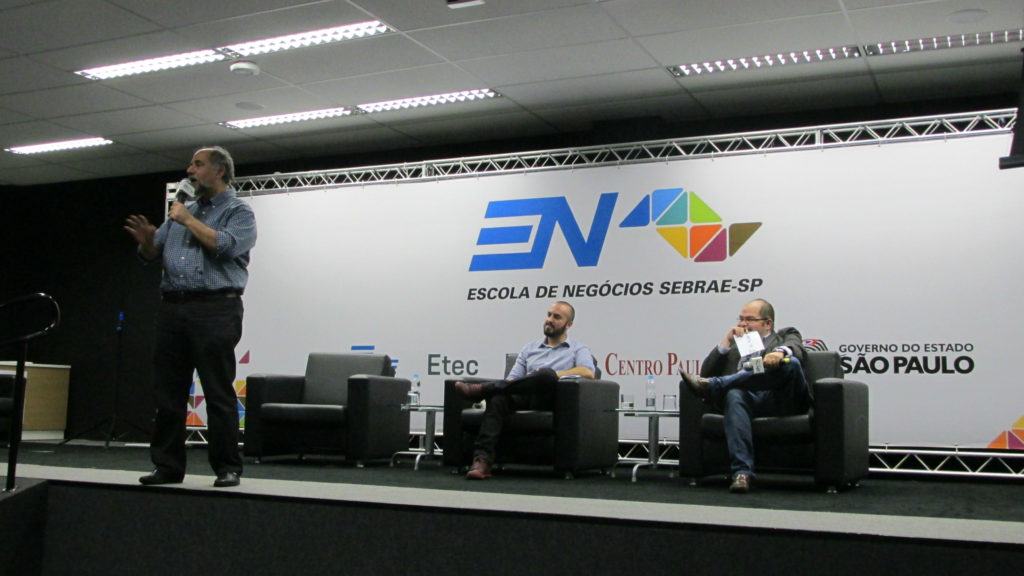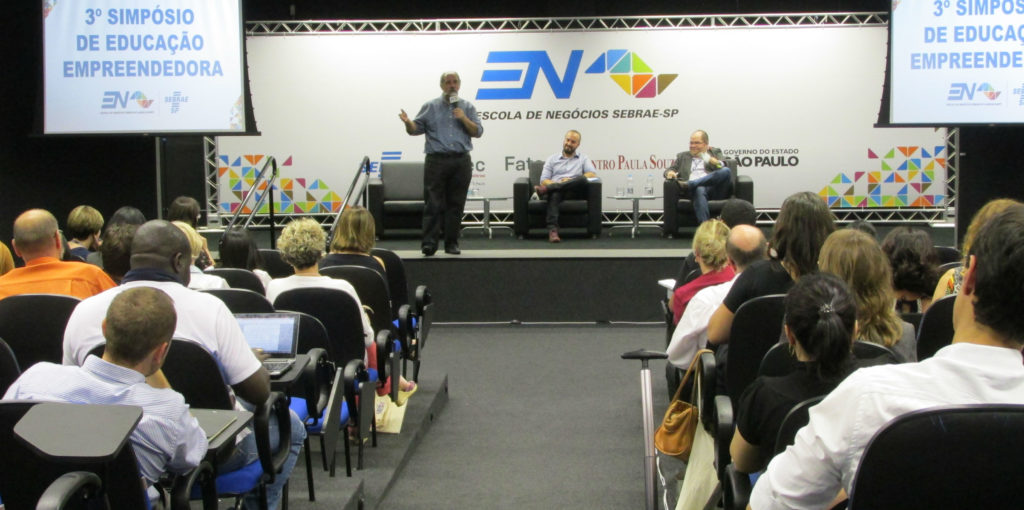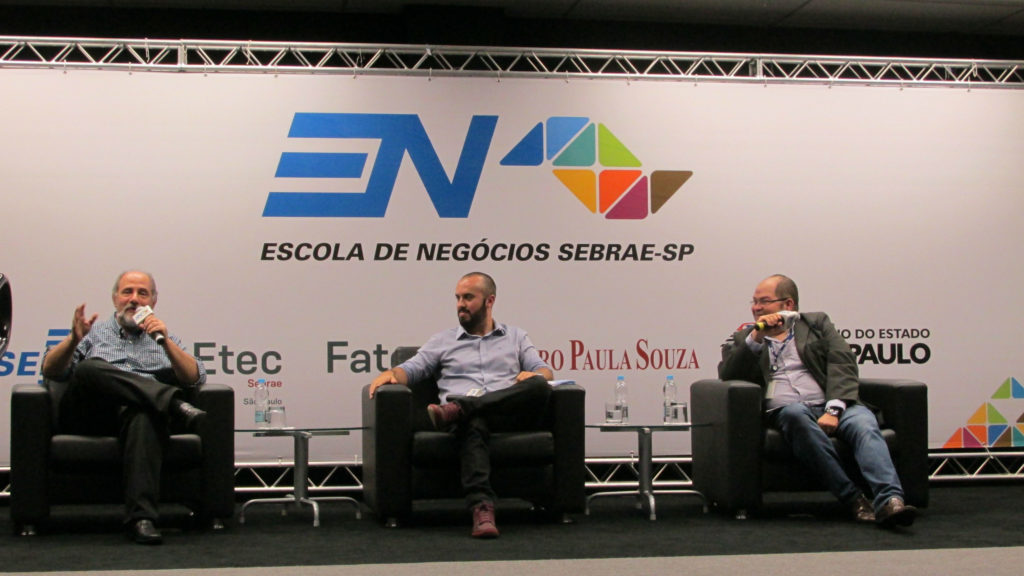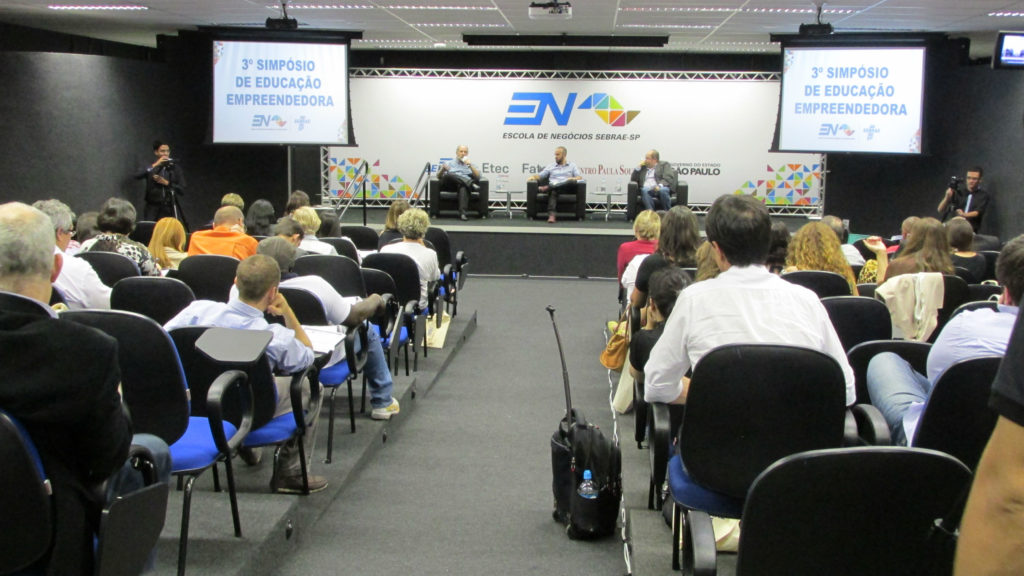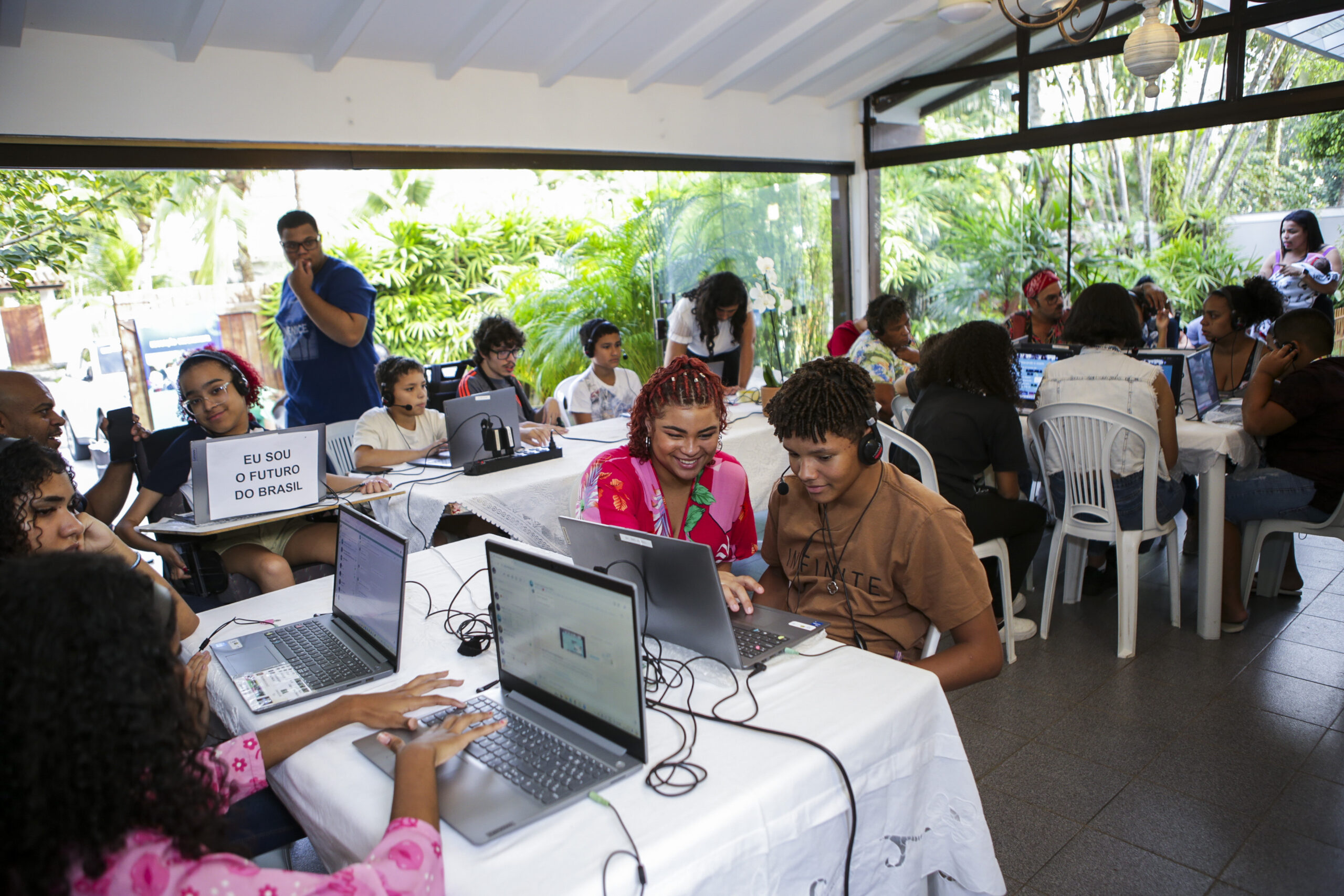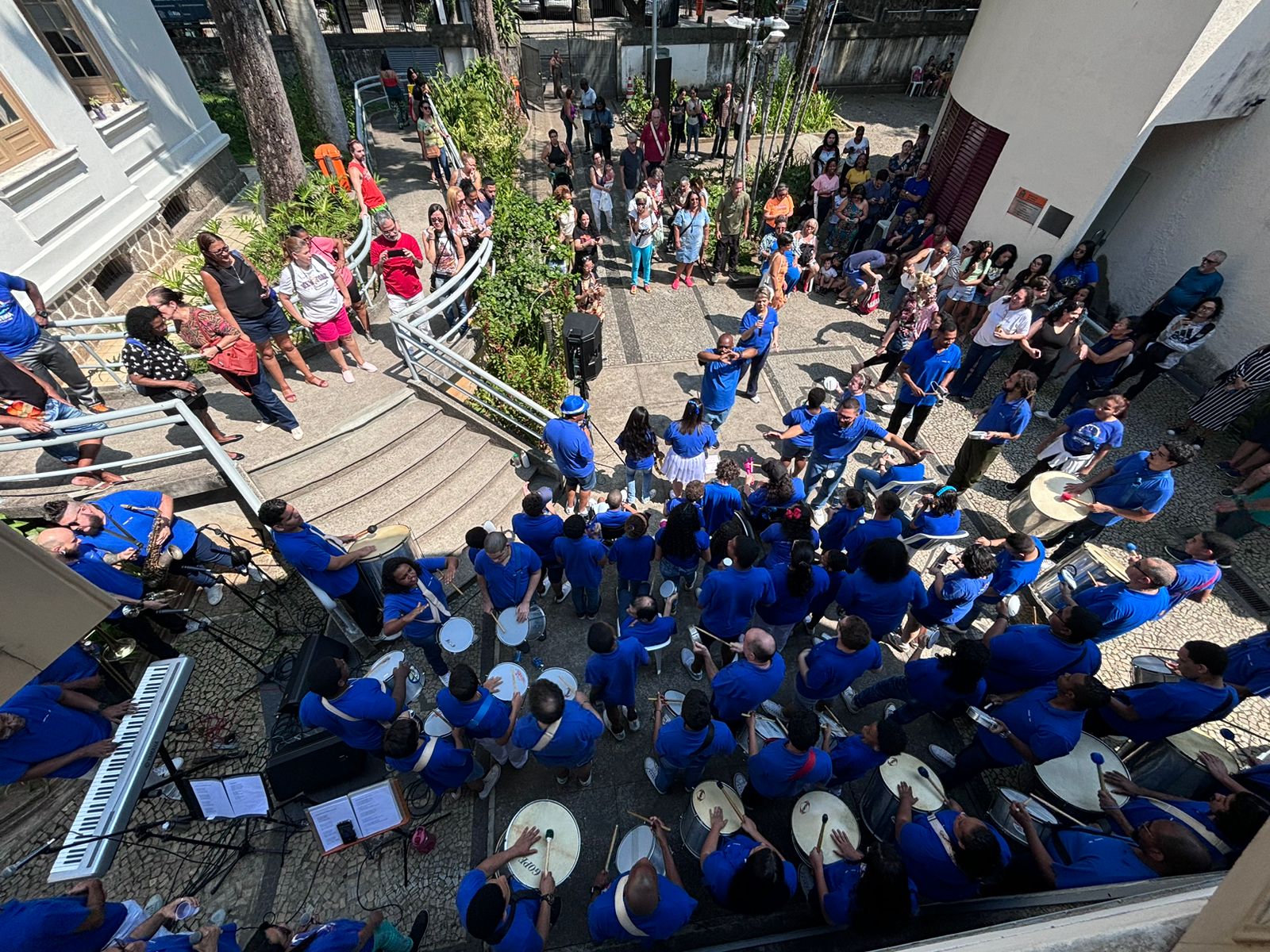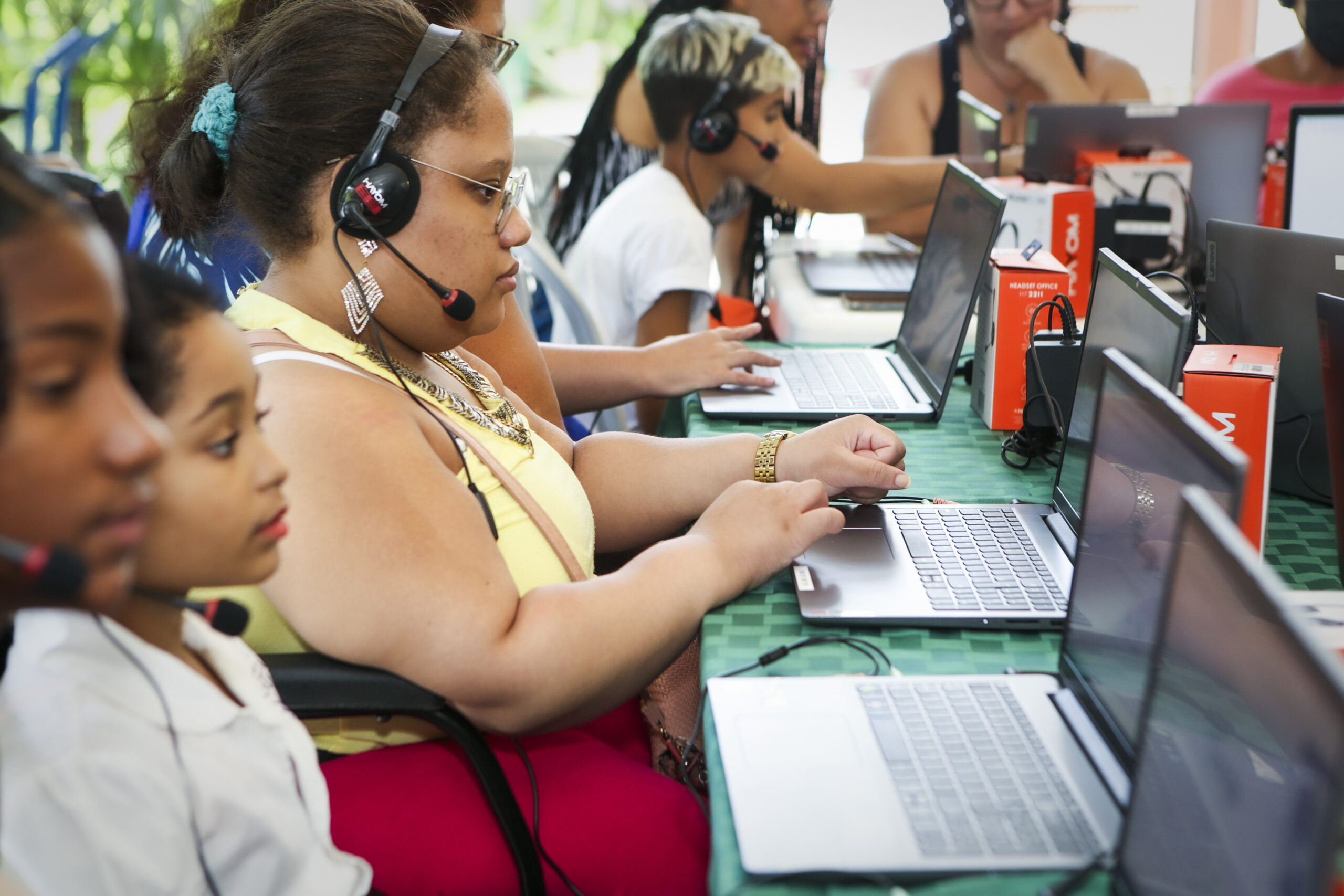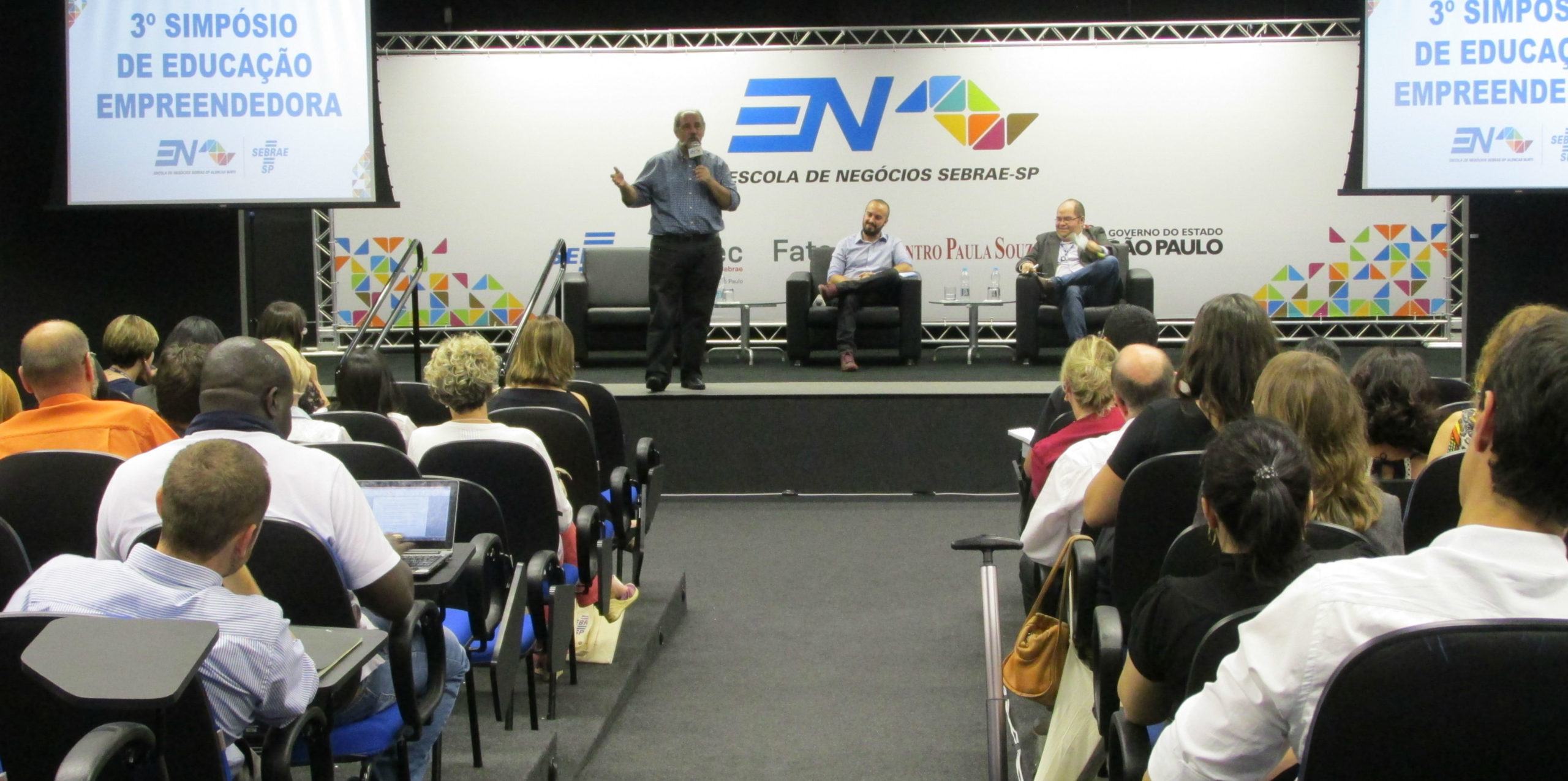
The Academic Working Capital program was invited to take part in the 3rd Entrepreneurial Education Symposium, held on October 27th by Sebrae-SP Alencar Burti Business School. Marcos Barretto, professor at the University of São Paulo (USP) and academic coordinator of the program, participated in the third panel discussion of the event, themed “Entrepreneurial ecosystem – Companies’ contribution to entrepreneurial education”. The panel was also formed by Renan Prado, from the Employer Branding area of Natura’s Human Research department, and mediated by José Marques, consultant at Sebrae-SP Business School.
Marcos spoke about his experience as an entrepreneur and presented the AWC program. He commented about the reflections that are happening in the university scope concerning curricular structure changes and how they have been leading to entrepreneurship incentive actions, as happened to AWC. “In traditional courses, in which the curriculum is structured, we talk a lot about analyses and little about synthesis. This means that we think about what happens, but we do not create over this, we do not synthetize new things”, says Marcos.
The Final Project (TCC) itself is not used by the students beyond academic life, according to the professor. Thus, the idea of AWC is to provide a distinctive experience so that the students can turn their TCC into something useful, step out from the projects and actually build a product. Marcos explained that the last year of graduation is a decisive phase full of uncertainties for the students. Therefore, it is necessary to show them that they can believe in themselves and that their projects are possible to put into practice. “Understanding this moment of youth is one of our program’s differential.”
When he was questioned about what attracted him most about working on this program along with Instituto TIM, the professor said it was the fact that Instituto TIM understands that AWC is a gradually developing initiative, and it does not generate results overnight. He also highlighted the liberty he has to discuss with the team questions related to a more comprehensive support for the students concerning professional entrance.
According to Marcos, taking part on the symposium is a way to inspire education institutions to develop entrepreneurial education initiatives. “Having this recognition is very important because it helps people to understand the message and the aim of the program and the need for the university to change and educate their students for entrepreneurship.”
